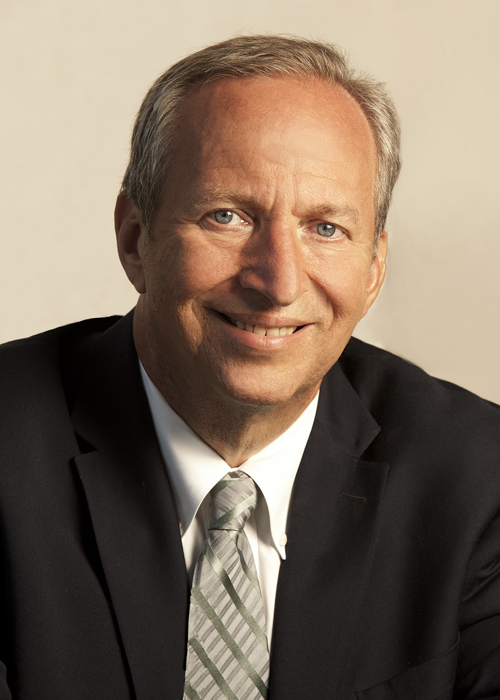Your search - Summers, Lawrence H. - did not match any resources.
Larry Summers
 Lawrence Henry Summers (born November 30, 1954) is an American economist. He served as the 71st United States secretary of the treasury from 1999 to 2001, as the 27th president of Harvard University from 2001 to 2006, and as the eighth director of the National Economic Council from 2009 to 2010. Currently at Harvard Kennedy School, he is the Charles W. Eliot University Professor. He is on leave from his teaching responsibilities and from his role as the director of the Mossavar-Rahmani Center for Business and Government as of November 19, 2025, due to an investigation into his ties to Jeffrey Epstein.
Lawrence Henry Summers (born November 30, 1954) is an American economist. He served as the 71st United States secretary of the treasury from 1999 to 2001, as the 27th president of Harvard University from 2001 to 2006, and as the eighth director of the National Economic Council from 2009 to 2010. Currently at Harvard Kennedy School, he is the Charles W. Eliot University Professor. He is on leave from his teaching responsibilities and from his role as the director of the Mossavar-Rahmani Center for Business and Government as of November 19, 2025, due to an investigation into his ties to Jeffrey Epstein.Summers became a professor of economics at Harvard University in 1983. He left Harvard in 1991, working as the chief economist of the World Bank from 1991 to 1993. In 1993, Summers was appointed Under Secretary for International Affairs of the United States Department of the Treasury under President Bill Clinton's administration. In 1995, he was promoted to Deputy Secretary of the Treasury under his long-time political mentor Robert Rubin. In 1999, he succeeded Rubin as Secretary of the Treasury. While working for the Clinton administration, Summers played a leading role in the American response to the 1994 economic crisis in Mexico, the 1997 Asian financial crisis, and the 1998 Russian financial crisis. He was also influential in the Harvard Institute for International Development and American-advised privatization of the economies of the post-Soviet states, and in the deregulation of the U.S. financial system, including the repeal of the Glass–Steagall Act.
Following the end of Clinton's term, Summers served as the 27th president of Harvard University from 2001 to 2006. Summers resigned as Harvard's president in the wake of a no-confidence vote by Harvard faculty, which resulted in large part from Summers's conflict with Cornel West, financial conflict of interest questions regarding his relationship with Andrei Shleifer, and a 2005 speech in which he offered three reasons for the under-representation of women in science and engineering, including the possibility that there exists a "different availability of aptitude at the high end", in addition to patterns of discrimination and socialization.
After his departure from Harvard, Summers worked as a managing partner at the hedge fund D. E. Shaw & Co. Summers rejoined public service during the Obama administration, serving as the director of the White House United States National Economic Council for President Barack Obama from January 2009 until November 2010, where he emerged as a key economic decision-maker in the Obama administration's response to the Great Recession. In November 2023, Summers joined the board of directors of artificial intelligence organization OpenAI, before resigning in November 2025 after revelations about his ties to child sex offender Jeffrey Epstein. Summers was involved in Genie Energy and the University of Austin. Provided by Wikipedia






